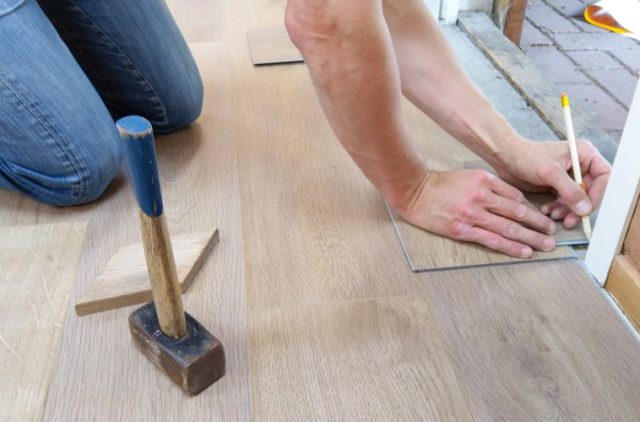Home
renovations are extremely popular at the moment, whether we’re trying to add
value to our property or design our dream home. It’s never a bad idea to work
on improving your space, however it’s not all plain sailing. Whilst it may seem
easy to add an extension or replace a rood, there are hidden costs involved
which can take you by surprise. Here, we’re taking a look at the hidden costs
of renovating your home.
<h2 Listed buildings
When you
bought your property, you should have been told if it was a listed building. If
it is, then chances are you will struggle to carry out any planned work without
a fight. It is actually a criminal offence to simply go ahead with any work
without the authorisation to do so. If you are unsure whether or not your
property is a listed building, you can check at British Listed Buildings.

<h2 Check your electric
Sometimes,
work you plan to carry out will mean moving your electric meter and fuse
box. However, you
must make sure you don’t move it yourself. Why? Yep, you guessed it; this is
also illegal. Usually, if it’s a move of less than 15 centimetres, this can be
carried out by your energy supplier free of charge. But for larger-scale moves
of over three metres, your local distribution company would have to move your
mains supply before the electricity meter can be placed elsewhere. If this is
something you require, make sure you book the relevant appointments to avoid
long delays.
<h2 Remember to notify the
neighbours
With some
work, you must notify your neighbours of your project thanks to the Party Wall
Act of 1996. This occurs if you share a wall with another house and your work
may undermine the structural integrity of the wall. Tasks such as fitting
shelves and replastering aren’t included in this Act, however, if you were
looking to undergo more extensive work it is something you must adhere to.
Although
this seems like a very formal approach, it’s important to provide a ‘notice’ to
your neighbour which outlines your prospective work. Present this to them
alongside a copy of the Act two months before you intend to carry out the work.
They will then have 14 days to raise any concerns they may have and provide
written approval or rejection. Doing this will cover you if anything turns sour
with said neighbour. If they do reject your proposal and it’s impossible to
come to some form of agreement, you will be required to assign a surveyor who
will then determine what work can be carried out.
<h2 Loft conversion
regulations
Often, to
create more living space, people look at converting their lofts. However, make
sure you get the correct building regulations approval. This is required to
ensure there is sufficient structural strength to the floor, while also making
sure that the existing roof and the structure’s stability isn’t jeopardised.
In many
homes, the timber joists that form the floor of the loft space won’t be sturdy
enough to support significant weight. This could cause issues if you plan to
turn your loft space into a spare bedroom, for example, and without official
planning meeting set regulations you could run into a host of problems. Perhaps
surprisingly, any work that you carry out could indeed hinder your future sale
if you don’t get the appropriate permission and paperwork. In some instances,
you will be required to revert the property back to its former state if you
haven’t gone through the correct channels when carrying out the work.
<h2 Garage conversion regulations
Unlike loft
conversions, you generally aren’t required to seek planning permission if it’s
not your intention to enlarge a garage and increase the size of your home. If
your sole purpose is to use the space for personal gain, then you should be
able to carry out your intended work so long as you complete the work
thoroughly and to the correct standard. However, it’s important to note that
planning permission must be sought if you are looking to convert the space into
a separate house.
<h2 Adding extensions
Extensions
are ever popular in the world of renovations. However, not everyone understands
the impact it may have on your property. For example, have you considered the
impact an extension will have on your current boiler? Adding extra space will
mean there’s an added demand on your hot water system and, in some cases, your
boiler won’t be able to cope. Make sure you factor this in to any plan.
You must
also get building regulation approval – even if you don’t need planning
permission due to using permitted development rights. In some cases, you may
also need to pay a Community Infrastructure Levy, so it’s important to check
this out prior to conducting any work.
While
renovating your property can result in an amazing end product, getting to the
final stage can be hard work and have many obstacles. For any work you may be
thinking of carrying out, it’s important to carry out thorough research before
you start so that hidden costs and issues don’t creep up on you.









